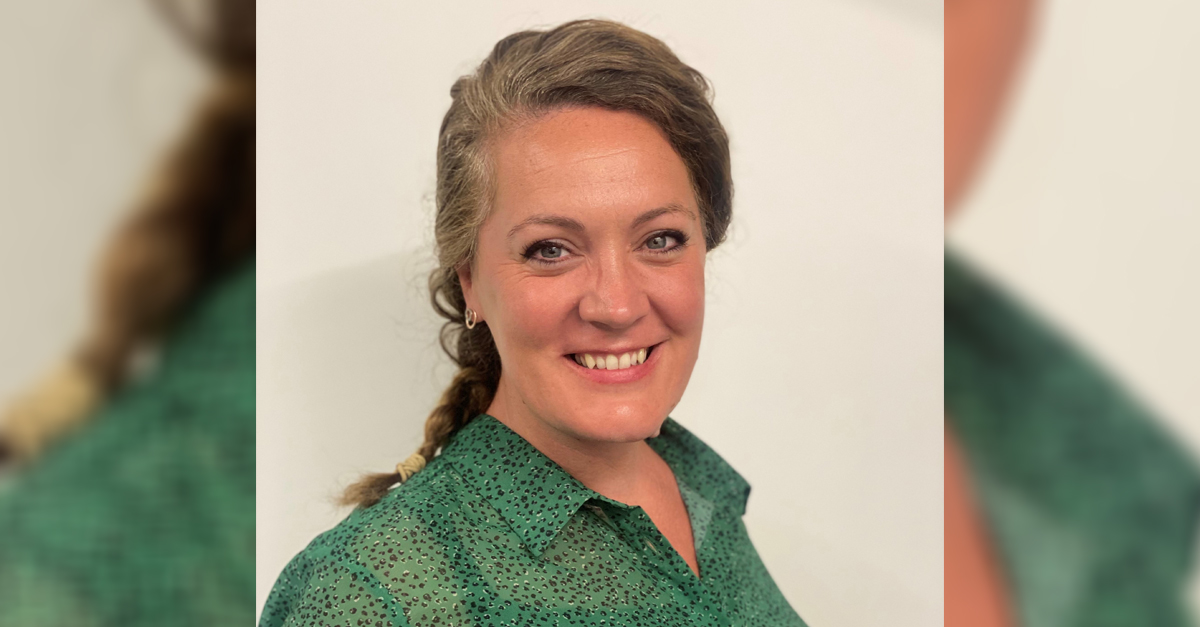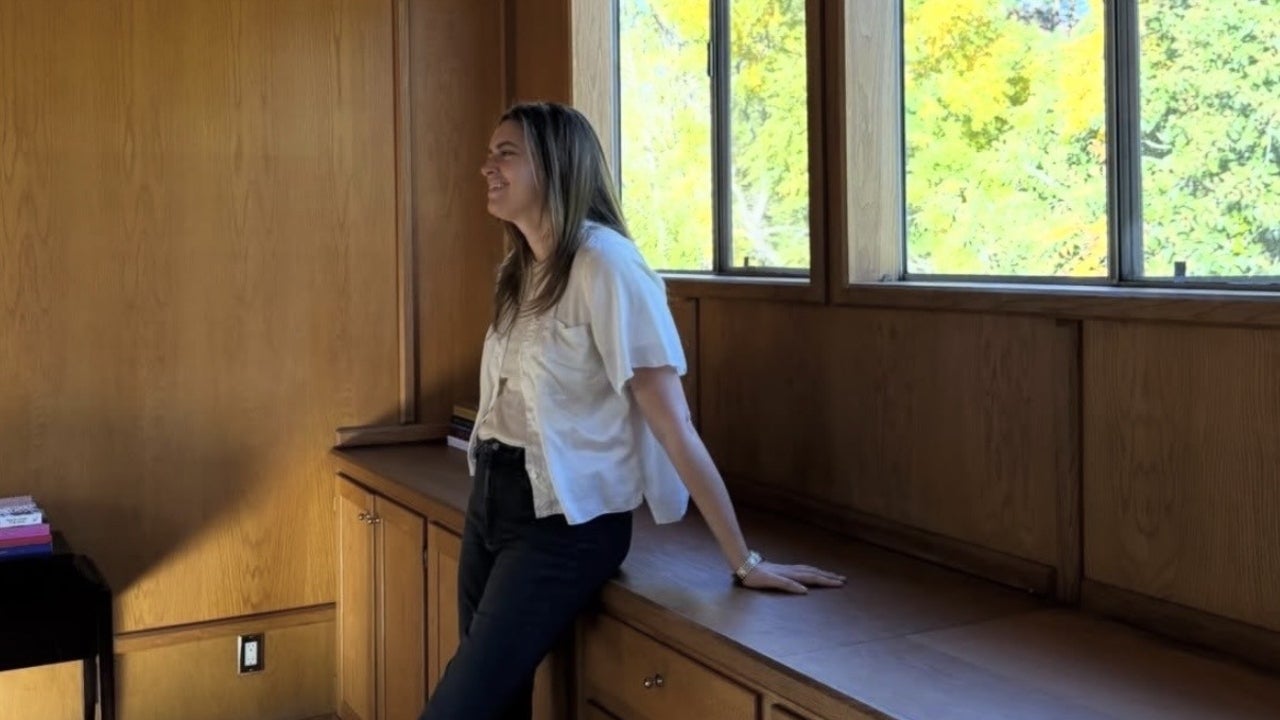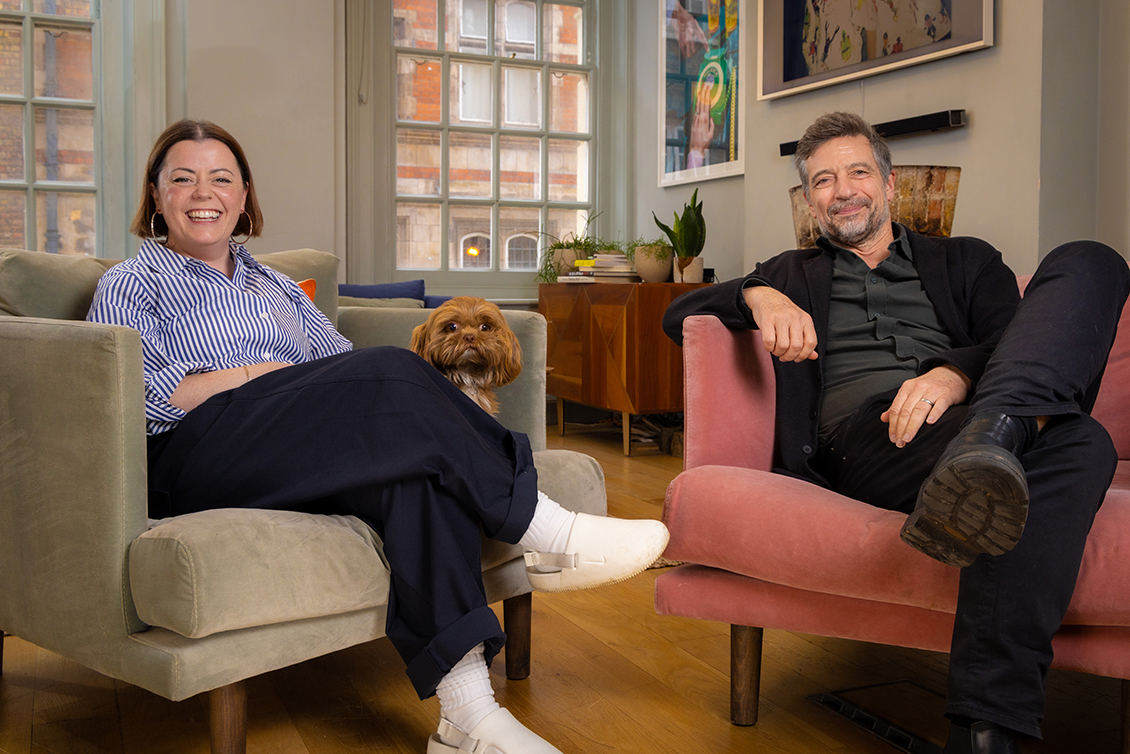How a gay anti-bullying PSA from the late 2000s became a cult classic
The clip has earned a spot in the cultural zeitgeist — 'It lives rent free in my head,' one viewer said.

Hilary Duff in a Think B4 You Speak ad.
Courtesy: iSpot
As Pride Month kicked off this year, Kai Cameron put on various wigs and outfits to recreate a commercial that he remembers vividly from the late 2000s.
The social media director posted a video on TikTok mimicking an advertisement in which actress Hilary Duff told shoppers not to use the word gay as an insult. Looking at another actress in the commercial, Duff equated using the term in the pejorative to saying "That's so girl wearing a skirt as a top." She ends the ad by asking if people mean to be hurtful and to "knock it off."
"It lives rent free in my head," Cameron told CNBC in an interview.
Cameron has received nearly half a million likes and hundreds of comments on the video as of press time. Viewers of Cameron's reboot said in comments that Duff "ended homophobia" and "deserved a Nobel Peace Prize." The original commercial, they said, "changed lives" and was "a moment in history."
If these comments are any indication, Duff's video has become a cult classic for a generation that saw the advertisement on its favorite TV channels. It's etched so clearly into their minds, and with an ever-growing slate of references across media, it's earned a long-term spot in the cultural zeitgeist. Because of that, the ad can act as a success story for advancing social issues through media messaging. At a fraught moment, nearly two decades later, supporters of the youth LGBTQ+ community wonder what can be done to reaffirm the campaign's original message.
For LGBTQ+ viewers in particular, the 17-year-old segment holds a special meaning for its success in combating hate and its unique representation on screen. It is considered both humorous and over-the-top, while also spotlighting a pervasive issue in a memorable fashion.
"We caught lightning in a bottle," said Kevin Jennings, the founder of youth LGBTQ+ advocacy group Gay, Lesbian & Straight Education Network (GLSEN), which spearheaded the campaign. "There's no other way of putting it."
'We can make history'
At the time of the campaign's release in 2008, social media was still nascent and linear TV reigned supreme. In this environment, GLSEN saw an opportunity to shape public discourse against using the phrase "that's so gay."
The group launched what's known as the "Think B4 You Speak" campaign. Beyond the 30-second ad with Duff, a similar spot featured comedian Wanda Sykes likening using the word "gay" negatively to having a "cheesy" mustache. A print advertisement blitz and special website also helped push the message.
The goal: to push back on "ambient" anti-LGBTQ language, according to Jennings. While many people at the time knew that some slurs were hurtful, using words like "gay" as an insult hadn't yet gotten the same treatment, he said.
Hilary Duff arrives to ABC's "Good Morning America" in Times Square on January 23, 2023 in New York City.
James Devaney | Gc Images | Getty Images
Jennings remembers thinking GLSEN had an equation for success. Duff was high up on the organization's list of dream faces for the message given her roles in well-known youth media like the TV show "Lizzie McGuire" and movie "A Cinderella Story."
GLSEN also had the support of the Advertising Council, the group behind iconic social awareness campaigns such as Smokey Bear and Friends Don't Let Friends Drive Drunk. The campaign marked the council's first-ever ads focused on social issues related to the LGBTQ+ community.
"If we pull this off, we can make history," Jennings recalled thinking. "And we did."
A viral moment is born
Because the Ad Council relies on donated space for its work, Jennings worried that broadcasters would shy away from the campaign due to its focus on the LGBTQ+ community. But he said Duff's spot in particular quickly received positive feedback, which encouraged companies to move it from unpopular hours to primetime.
Duff's ad also got a boost on social media platforms like Facebook and YouTube, which at the time had only been around for a few years. Now, he views it as one of the first pieces of media to "go viral" via social platforms.
"If you'd asked me that day: 'Kevin, do you think we would still be talking about these ads 20 years later?,' I would have said, 'Well, in my wildest dreams,'" Jennings said. "It turns out my wildest dream came true."
Data shows that the ads made inroads on curbing the term's use. GLSEN's 2021 school climate survey found 68% of survey takers heard "that's so gay" either frequently or often, down from more than 90% two decades earlier.
The campaign also led to a slide in bullying rates and an uptick in Gay-Straight Alliance participation, according to Melanie Willingham-Jaggers, the current executive director of GLSEN.
Additionally, there's anecdotal signs of success. Even before he publicly identified as LGBTQ+, Derrick Winrow II remembers trying to emulate Duff by calling out classmates who used the word gay as an insult for about a week.
"I think I was too anxious to continue doing it, but the message stayed with me ever since," the 31-year-old artist said. "It was a lot more impactful than I thought it was going to be."
'Burned into your mind'
In the nearly two decades since it first aired, Duff's ad has raked up several nods in media and culture.
Sabrina Carpenter, a singer and fellow Disney Channel alum, jokingly quoted Duff during her Netflix Christmas special that aired late last year. Comedian Ziwe also asked a guest on her namesake show about the ad in a 2022 episode.
Bratz last year recreated the spot using its dolls in the likeness of Duff and the other actresses. Etsy sellers hawk apparel citing Duff and the ad.
Read more CNBC analysis on culture and the economy
The hosts of the Nogorge podcast discussed using the word "gay" in an episode last month. They wondered if it could be reclaimed in the same way marginalized groups have taken back similar words that were once used offensively.
Video recreations like Cameron's appear across popular platforms such as TikTok and Instagram. Duff herself even got in on the trend, dropping a video of her lip syncing the original ad three years ago.
"It's burned into your mind," said Carli De Ville, an Austin, Texas-based sex therapist who discussed the ad in a TikTok video. "To have activism mixed with camp, I think, is what made it so iconic."
Duff's ad struck a chord with more than just LGBTQ+-identifying viewers who felt validated by its affirming message. Yasmine Sahid, a social media content creator, said in a caption of her own iteration of the clip that the original video "made me an ally" to the LGBTQ+ community.
"If Hilary Duff says that it's wrong to use the word gay in a derogatory manner, then who am I to use the word that way?" said Sahid, who recently made her TV debut in Amazon Prime's "Overcompensating."
Representation then and now
Viewers and experts alike agree that it would be hard to make an ad with the same level of visibility today given the fragmented media landscape. More than a decade and a half since the campaign, advocates for LGBTQ+ representation in media see both reason for celebration and a need for further efforts.
"Right now, there's some really good representation across the LGBTQ community," said Joanna Schwartz, a Georgia College & State University professor who teaches a class on LGBTQ+ marketing. "But in 2007, it wasn't really there."
For instance, positive representation in film tracked by advocacy group GLAAD has skyrocketed over the past decade. However, Schwartz said subgroups like transgender people haven't seen the same gains that the broader community has.
The LGBTQ+ community is also mostly unrepresented in advertising, according to GLAAD data from 2023, which is the most recent information made publicly available. Of the more than 400 ads on national linear TV from the 10 largest agencies, GLAAD found LGBTQ+ people were featured in only 3% and accounted for less than 2% of screen time.
For youth LGBTQ+ advocates, they're concerned about a resurgence of bullying and the ability of trained support providers to combat it. GLSEN laid off 60% of staff earlier this year, with Willingham-Jaggers citing funding pressures after corporations cut donations for LGBTQ+-related groups amid right-wing pressure.
Jennings, who worked on anti-bullying initiatives in the Obama administration and now runs LGBTQ+ rights group Lambda Legal, highlighted the "Don't Say Gay" bills passing state legislatures as evidence of progress receding. This type of legislation, he said, contradicts the campaign's original goal of raising awareness and encouraging inclusivity among youth.
"What we learned through this campaign and through the Obama years was that if we put the time and resources into it, we can make a difference," Jennings said. "What we're learning right now is that that difference can be reversed — and that breaks my heart."

 Tfoso
Tfoso 































